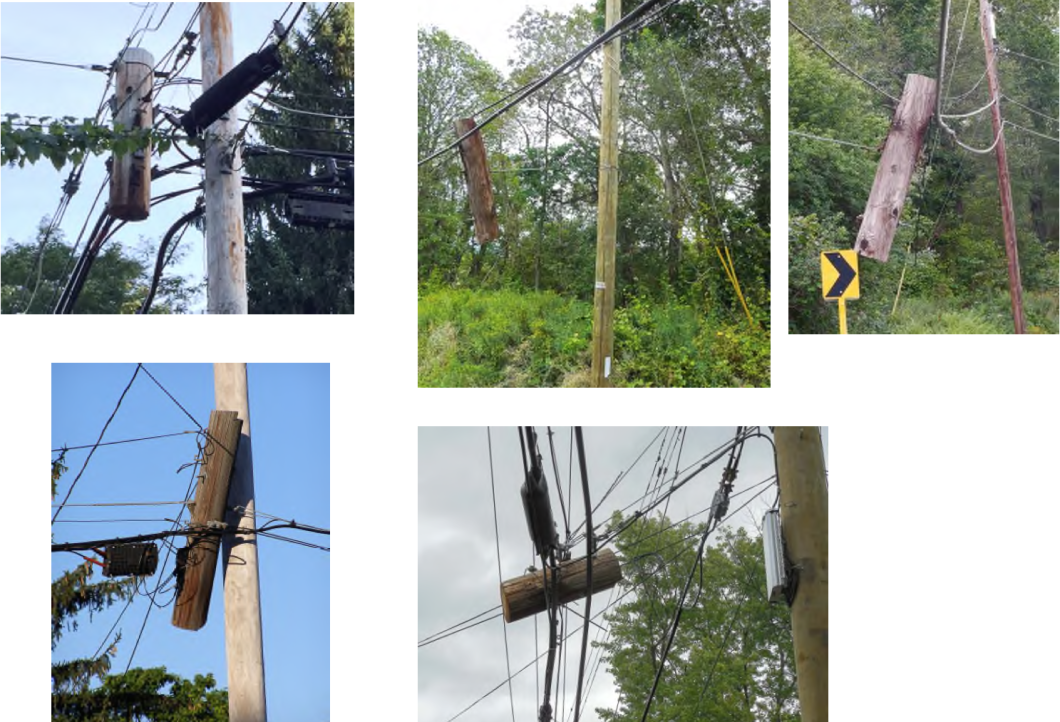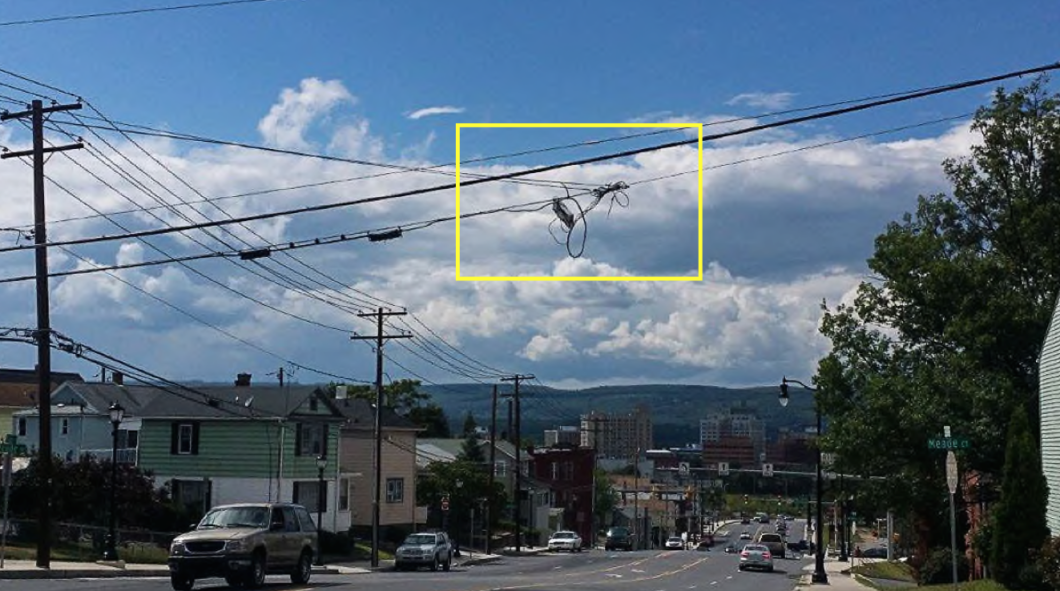Union Chief: Verizon Will Discipline, Possibly Fire, Techs Who Repair Copper Phone Lines
As Americans continue to ditch wireline phone service in favor of wireless, and as wired voice lines are increasingly moving to fiberoptic networks or lines operated by cable companies, the telecom workers unions and some consumer advocacy groups have accused Verizon of allowing its old network to fall into disrepair. Recently, the head of a union representing thousands of Verizon employees testified that techs can get into trouble and possibly lose their jobs if they actually try to repair damaged copper lines.
In testimony [PDF] given last week before the Pennsylvania Public Utility Commission (PUC), James Gardler, president of the Philadelphia-based union alleged that repair technicians are not given the time, tools, equipment, or support they need to properly maintain the old network.
Last October, the union petitioned the PUC, submitting photographic evidence of neglected and potentially dangerous situations: dangling remnants of utility poles that hang out over the street and are held up by nothing but sagging phone lines; Verizon hardware that has been vandalized, smashed, or now houses wildlife; hastily made extensions over expanded streets that would require workers to either stop traffic for hours or risk working in the middle of the road:


“The problem isn’t our members’ training or experience,” testified Gardler last week in response to questions about these examples and others. “The problem is that Verizon does not give our members either the time or materials to do the work properly.”
He gives the example of Verizon techs being told to use the wrong type of enclosure on certain cables. This enclosure, says Gardler should only be used on plastic insulated cable. What’s more, techs are only given 20 minutes to do this job, which should require significantly longer to make sure everything is set and air-tight.
Gardler claims that workers can’t even use the proper enclosures because they aren’t allowed to carry them on their trucks.
Which leads us into the controversial issue of Verizon VoiceLink, a service that connects a customer’s home phone line to a nearby Verizon Wireless cell tower. The problem is, VoiceLink currently won’t let users send any sort of data, so businesses and homeowners that rely on data-over-copper services like fax machines, alarm systems, credit card terminals, and others can be left out in the cold.
Verizon has made headlines — many of them negative — for deploying VoiceLink as a short-term emergency response in the wake of natural disasters and then not replacing it with a true landline alternative.
Gardler says that “Verizon is not willing to spend the money, or hire the people needed,” to repair copper lines. “Instead, we’re told to install VoiceLink for voice-only customers and allow the copper network to deteriorate even further.”
In fact, according to documents filed in support of his testimony, Gardler notes that in September, Verizon began telling techs that “if they actually try to repair copper plant instead of using VoiceLink, they will be subject to disciplinary action by Verizon.”
An email from Aug. 23 appears to advise that techs are being monitored through daily reports to make sure that all VoiceLink eligible customers are being switched over instead of repairing the cables. In an apparent preemptive response to customers and techs who would claim that wirline service is a must for their connection, the email snarkily notes that “every customer cannot have an alarm system. Please work the voice link conversion. You need to verify the voice link [sic] will not work, DO NOT RETURN TO CABLE a voice link eligible service unless you verify the service won’t work.”
While Gardler’s testimony does not explicitly state that Verizon employees could lose their jobs for choosing to repair a copper line instead of deploying VoiceLink, the memo (see image at left) from Sept. 20 seems to make the company’s position clear.
“It is a requirement that migration to Voicelink be your first option when the customer qualifies and the trouble is in Verizon’s network,” reads the memo. “Failure to follow this directive may result in disciplinary action up to and including dismissal.”
A follow-up memo sent the next day does allow for techs to not deploy VoiceLink, but only after they determine that the “customer does not qualify,” meaning the wireless system would not work.
Verizon continues to deny the union’s allegations that the company is neglecting its copper line. Last week, a rep for Big V told FierceTelecom, “The reality is that Verizon continues to make substantial investments in the wireline network each year – more than $3.4 billion last year alone.”
Want more consumer news? Visit our parent organization, Consumer Reports, for the latest on scams, recalls, and other consumer issues.

